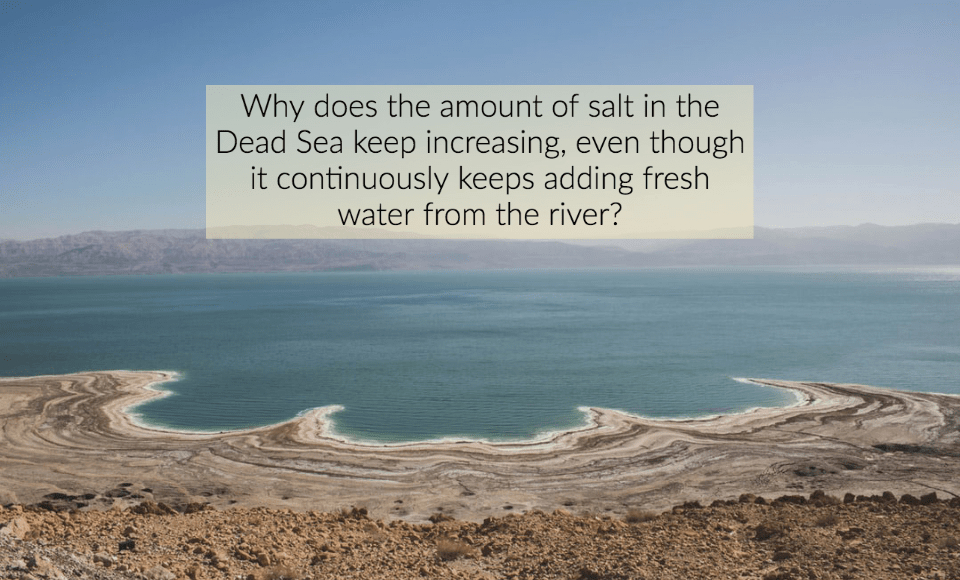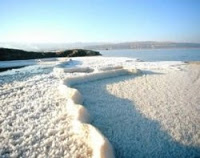Truth to be told, there is freshwater flowing into the Dead Sea, coming from its only primary source of water – the Jordan River. Despite this, the Dead Sea continues to get saltier and saltier through time. But why? Shouldn’t freshwater decrease its salinity?
While it is called a sea, the Dead Sea is actually a lake, implying that it is surrounded by land, like a basin. As fresh water from the Jordan River reaches the Dead Sea, it won’t flow out or has no way to exit. But, since the Dead Sea is situated in a very hot, dry, and low-lying desert, the water evaporates more rapidly than it would be on an ocean. Thus, leaving huge amounts of salt behind, which forms on the bottom of the lake as big crystals.
Humans also play a part in why the lake is getting saltier. For the past few decades, Dead Sea’s water levels have been on a slide at around 1.2 meters annually. That is because the water from its only source, the Jordan River, has been utilized for other purposes, such as providing various communities with water and pumping evaporation ponds. Moreover, water from the lake is also extracted for its therapeutic minerals and cosmetic purposes.
Such human activities siphon precious water from the lake without having it replaced, causing Dead Sea’s boundaries to shrink and making the remaining water much saltier.
Theoretically, that shouldn’t be an issue should the Dead Sea be supplied of water from its traditional source – the Jordan River. However, more and more Israelis, Palestinians, and Jordanians continue to rely on the latter’s water for consumption and agriculture. Tourism also began to boom in the region. Many hotels and establishments contribute to blocking water from reaching the Dead Sea.
With all those factors, the Dead Sea is receding at an alarming rate. Some studies even estimated that the lake has sunken around 100 feet since the onset of the 20th century. It has been forfeited water sources, rendering it unable to restore itself. With that, the lost volume of water allows the relative salinity of the lake to increase continuously.
However, studies suggest that even without the given human activities, the Dead Sea could still be in peril. Scientists drilled below the body of water to find information about its geologic makeup and history. They have discovered that during the warm era prior to the last ice age, the Dead Sea dried up in its entirety, only leaving its massive salts behind.
Fortunately, people don’t like that to happen. In 2015, Jordan and Israel inked a multi-million deal that would construct a canal from the Red Sea to the Dead Sea. It would pump water to the Dead Sea, halting the downturn in its water level and giving the ‘dead’ a new life.
More Readings:
Dead Sea (Wikipedia)
You Might Also Like:
- Why is it easier to swim in saltwater than in fresh?
- How does gargling with salt water help to cure sore throat?
- Why does gargling with salt water help with sore throat, but eating chips doesn’t?
- Why is our brain programmed to like sugar, salt and fat if it’s bad for our health?
- Have the oceans always been salty?

